Final blow
Supreme Court upholds ConCourt on:
- Nullification of election
- 50+1 system
- Poll irregularities
- MEC incompetence
- Admonishing of AG
Orders:
- No new registration
- No new candidates
- Election on July 2
- MEC pay costs for LC, SKC
- APM meets own costs
The Malawi Supreme Court of Appeal on Friday upheld the Constitutional Court (ConCourt) ruling to nullify last year’s presidential vote.
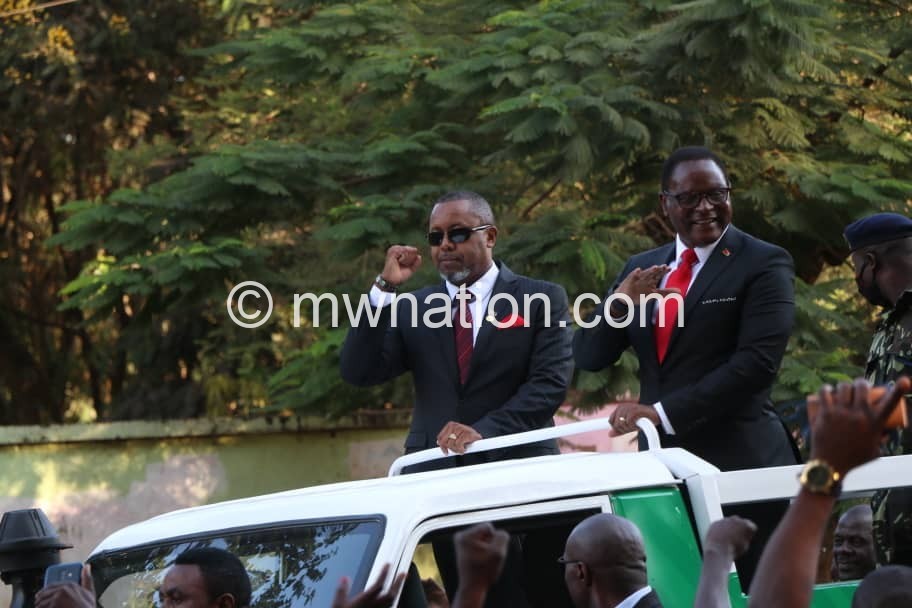
President Peter Mutharika, 80, whose narrow re-election in May 2019 was successfully overturned in court due to a litany of irregularities, and the Malawi Electoral Commission (MEC) had appealed the historic decision of the ConCourt delivered on February 3.
The court further ordered that there should be no voter’s roll and new candidates in the forthcoming election effectively halting an ongoing voter registration exercise by MEC marred by allegations of registering underage voters.
The ruling on the candidates temporarily caused confusion and apprehension inside the courtroom, among lawyers and the two previous candidates Saulos Chilima and Lazarus Chakwera, who were first and second petitioners, respectively,in the ConCourt case.
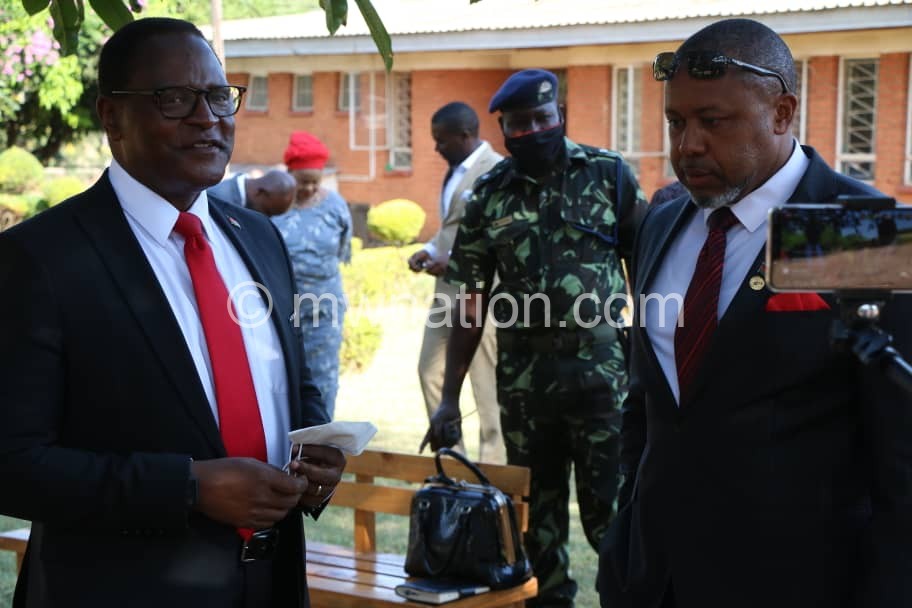
These two have now partnered to oust Mutharika—who—alongside the electoral commission—had appealed the ruling by the ConCourt.
Inside the court, as the panel of seven Supreme Court judges delivered their ruling, it was not immediately clear what the court order meant for candidates like Chakwera and Chilima who now are presidential candidate and running mate, respectively.
While there was little expectation that the court would disagree with the five ConCourt judges, the issue of majority meaning 50 percent+1 of the vote appeared a radical departure on the interpretation of Section 80 (2) of the Constitution.
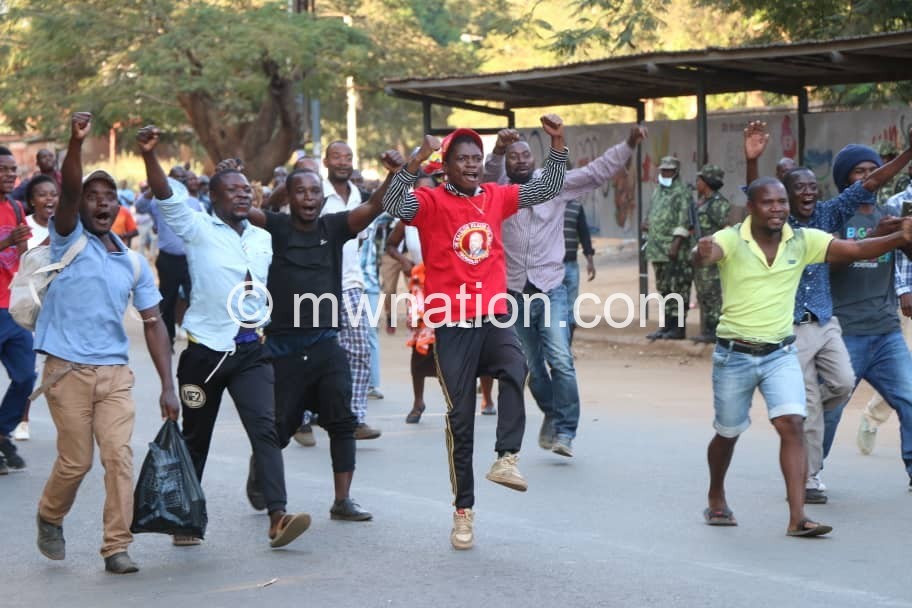
The court chastised the lower court for failing to properly distinguish that the Supreme Court had previously set two contrasting precedents on the matter, the court nonetheless agreed with the ConCourt on the determination.
The court further concurred with the ConCourt judges that the country needs a new legal framework to govern a run-off in the event of no candidate attaining 50 percent+1 and for recommending the same to Parliament.
Mutharika who was declared the winner of the disputed election faces an uphill task to win the fresh election after major opposition parties formed an electoral alliance. The President has also paired with United Democratic Front (UDF) in the July 2 election, and picked the party’s leader Atupele Muluzi as his running mate.
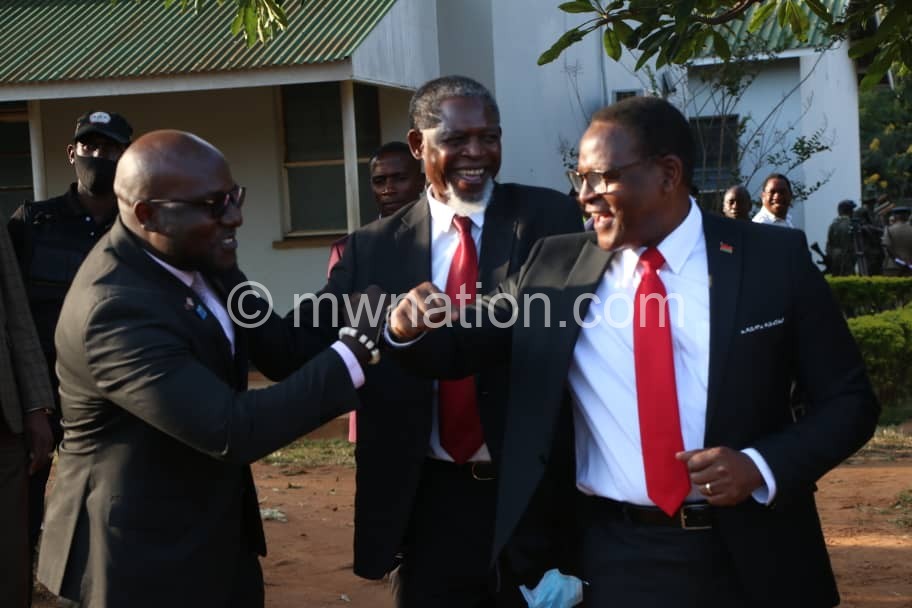
Danwood Chirwa, a professor of law at University of Cape Town in South Africa, hailed the ruling, saying it will herald “a true political renaissance” in the country.
“The confirmation of the interpretation of majority is the most important part of the judgement. It settles the law and will serve as a tipping point in Malawi’s democracy. The court reviewed all its previous decisions and carefully considered the consequences of those decisions. It decided against upholding its 1999 decision and adopted the Constitutional Court’s interpretation of the word. It’s a hugely consequential decision which will reverberate through the entire political space,” he said.
The panel of seven Supreme Court judges unanimously agreed that the management of the cancelled elections failed to meet constitutional tests due to a litany of irregularities including the use of the infamous correction fluid—Tippex—to alter results sheets.
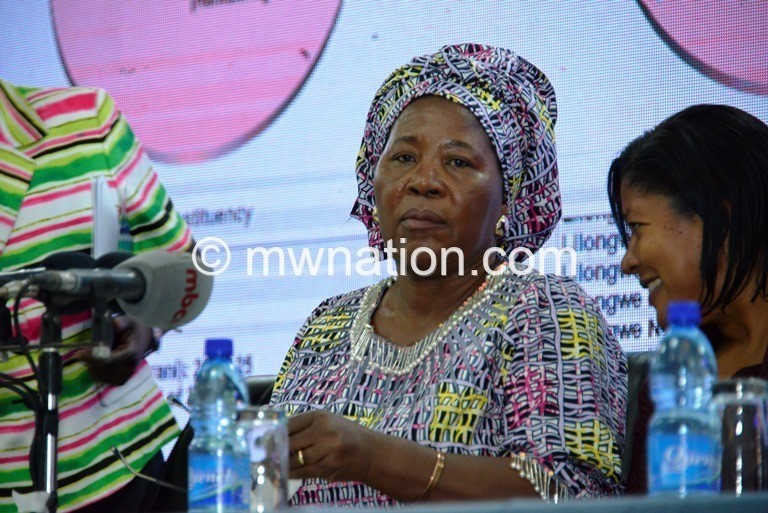
The court also affirmed a radical new interpretation of the laws governing elections to mean presidential candidates should only be declared winners after attaining over 50 percent+1 of the votes.
At the court, Chakwera and Chilima erupted into joy.Ignoring the threat of the coronavirus, the two drove through the capital Lilongwe in an open car as scores of supporters cheered and celebrated the fresh court victory.
“I am so happy; it is a vindication of what justice looks like. We are ready to follow through with what needs to happen but this country deserves better and I think a Supreme Court justice has just proven that. They have continued to hold the bar that was raised by the Constitutional Court. We believe that Malawi will set an example not just on the African continent but across the world that if you seek justice you can find it when you have Justices that are people of integrity,” Chakwera told journalists.
The MCP leader also immediately reiterated calls for the members of electoral commission, including chairperson Justice Jane Ansah, to immediately resign and pave the way for a new commission to administer the new election.
On his part, Chilima who was reinstalled as State Vice-President by the February judgement, said he was going to continue supporting Chakwera’s candidature as running mate unless the court provide a different interpretation to the order on candidates for the fresh election.
“The spirit of the judgement is that candidates who were there last year are eligible for the fresh election. So, one can opt out because you can’t really be forced to be a candidate. So we will continue as we presented our papers two days ago. Should there be a need to revisit that position then we will be guided by the commission,” he said.
Chakwera, Chilima welcome ruling
On the use of the old voter’s roll, Chilima welcomed the ruling, saying the Mutharika administration was busy registering underaged voters to rig the fresh elections.
Both Senior Counsel Modecai Msisha and Chikosa Silungwe, lead lawyers for Chakwera and Chilima, respectively, interpreted the court’s ruling as permitting their clients to continue their partnership.
Silungwe, who welcomed the ruling as a landmark for African elections systems, said the ruling on the candidates will not affect Chilima and Chakwera’s current partnership.
“A pair has never been the candidate but the individual in an election is a candidate. We know who the candidates were. The court has said something about eligibility—those who want to remain eligible on the basis that they contested in the May 21 2019 presidential elections, can exercise that eligibility,” he said.
On whether he could demand changes at MEC, Chakwera said: “It’s not even the question of demanding. If they have a sense of integrity at all, unless they are living in denial, what the Supreme Court has said now ought to make them put down their tools now.”
The ConCourt delivered its February 3 ruling amid political tension after the disputed election triggered seven months of protests.
The five judges had complained of attempts to bribe them before their verdict was delivered but amid political turmoil, they made history by becoming the second sub-Saharan Africa court—after Kenya–to overturn presidential elections.
The seven-panel of the Supreme Court judges comprised Chief Justice Andrew Nyirenda, Justice Rezine Mzikamanda, Justice Edward Twea, Justice Anaclet Chipeta, Justice Lovemore Chikopa, Justice Frank Kapanda and Justice Anthony Kamanga.





